


Selective Reading Through Analog Science Fiction & Fact, 1983
1983 was a grand teenage year for me, in which I discovered SF. I am lucky enough to have acquired each issue of Analog from this year; the last year in which Bob Paisley was manager of Liverpool FC, Return of the Jedi was released at the cinema, Thatcher won a landslide, and David Niven passed away.

January 1983
Hayford Pierce - Taking the Fifth
I read and enjoyed Pierce's Chap Foey Rider story in my exploration of 1976 Analog issues, so it was good to see another Pierce story published here. In this novella Pierce imagines that a perfect truth 'serum' has been devised, and that in order to enable its use to incarcerate criminals, the the clause on self-incrimination in the 5th amendment of the US Constitution must be repealed. Its a nice juxtaposition of ideas, and for the most part follows the efforts and speeches of lobbyists and candidates in support of a new 29th amendment that will bring these changes into action. Pierce writes well, and the story is entertaining and brisk. However I felt it was let down somewhat by the ending, which seemed less insightful than I was hoping for.
February 1983
Frederik Pohl - Servant of the People
Hugo Award nominee for Best Short Story in 1984. Frederik Pohl started writing short stories with C. M. Kornbluth in 1940 at the start of the 'golden age', of course, and was a giant of the genre, winning 4 Hugo Awards, and 3 Nebula's, edited Galaxy and If for many years, and was named the 12th SF Grand Master by the SFWA in 1993. This is a solid if not great story, telling the story of an aging career politician running for office against a robot competitor. I do like old robot stories (especially Asimov's) but this seemed slightly anachronistic given it was written in the 1980's. It also depends more on the 'twist' at the end than on the actual substance of the story, which perhaps also makes it seem older from a structural perspective.
March 1983
Robert Silverberg - The Election
I really liked this story, as expected, coming as it does from my favourite living SF writer. In the long list of Silverbob's award winning short stories, this one doesn't feature, but it's more considered, insightful and nuanced than either of the previous stories I've read in this 'reading challenge'. One might call it literary. Twenty years after a nuclear war, civilisation is recovering, living basically in a semi-feudal style. One such town, run undemocratically by a local autocrat, is visited by an official announcing an upcoming federal election. The autocrat rejects the proposal for US-wide democracy, with interesting arguments about what progress may really mean, and whether it's the right time for central government or not. Very good.
April 1983
Ben Bova - A Small Kindness
This was an engaging and well told tale, about a US hitman in Athens on the trial of a saintly figure from the World Government. It's hard to say much more without giving away the story's outcome. Bova is now best known for his Grand Tour novels of the solar system, but this story predated those books. Bova edited Analog of course, from January 1972 to November 1978 after Campbell's death in 1971 and he won six Hugo Awards for Best Professional Editor.

May 1983
Timothy Zahn - The Final Report on the Lifeline Experiment
This is a superior novelette by Zahn. It asks the question, if a telepath could sense 'humanity' in a person, could he use his powers to sense the same individuality in an unborn baby? And if so, could he accurately identify when a foetus becomes 'human'? Both pro-choice and pro-life lobbyists pressure the experimenter, who insists he's only pro-truth. Its a tricky subject to write about, but Zahn skillfully navigates a contentious issue very well, ending on a SF twist that should satisfy all readers.
June 1983
Greg Bear - Blood Music
One of the all-time great SF stories, and I didn't know until I picked up this issue of Analog and flicked through it that Blood Music was first published here. As I'd previously read the novelette I briefly considered reading something else from the issue, but nothing else in the issue stood out or has been deemed worthy of inclusion in any anthology or garnered any award nominations. It would therefore seem almost perverse to skip Blood Music, so I read it again. An absolute cracker of a story, of course. If you've not read it, find it and read it. Interestingly, Bear's classic didn't get the cover of Analog, which led with a Science Fact article by Gordon Woodstock!
July 1983
Timothy Zahn - Warlord
Another story by Zahn. I've generally tried to read different authors in each month, but some authors seem to crop up a fair bit and deserve repeat attention. This story looked most appealing from the issue, so Zahn gets another entry in the exploration. A novelette set within his Cobra series of stories, which ultimately became a long novel series (see here), this was an exciting tale. While this was more space-opera (or at least far future) than Zahn's more nuanced and careful story from May 1983, it was well done, providing good tension and with characters being well developed. Highly engaging, albeit lighter in substance than 'Final Report...'.
August 1983
Robert L. Forward - Twin Paradox
I was hoping for a quality hard SF short story here, but Forward's tale of an astronauts time dilation going to and from Arcturus to respond to an alien invitation is actually just a bit silly, and was therefore a disappointment. Little details didn't stack up either, such as the Earth population of 10 trillion - surely he meant billion - and the astronaut spending decades in space with nothing to do, all alone, with no psychological consequences at all; he seemed fresh as a daisy upon his return as though he'd popped down the shops. Quite poor really.

September 1983
Joseph Green - Raccoon Reaction
Green (1914-1990) was a 'golden age' writer, most famous for creating the Tom Corbett, Space Cadet stories and 1950's TV show. This was a solid short story about aliens coming to Earth orbit, with dire ecological consequences. It was nicely done, and quite engaging.
Mid-September 1983
Jack C. Haldeman, II - We, the People
This story placed third in the Analog poll for 1983. 'Jay' Haldeman was of course Joe Haldeman's older brother, with who he collaborated on a few stories. In what is really 'flash fiction', Haldeman imagines a world where you get to decide where your tax dollars go at the end of each year. An old guy decides which funding categories deserve his money, discussing it with his robot-computer as he goes through the IRS form. It's quite nicely done.
October 1983
Vernor Vinge - Gemstone
I've previously only read Vernor Vinge's Zones of Thought novels (A Fire Upon the Deep is excellent), so I was glad to find one of his novelettes in these magazines. This novelette starts off like a psychological thriller and gradually turns into an 'alien-on-earth' kind of story. I really rather like it, and characterisation was good.
November 1983
David Brin - Tank-Farm Dynamo
I had a tough choice this issue as there was a Poul Anderson story, but as it was set in Fred Saberhagen's Berserker universe and I've not read any of the original work I left it alone, and opted for Brin's novelette. Brin is most famous for two things: his Uplift series of novels, and for being super-smart (PhD in applied physics; a bit of a polymath). He knows his stuff when it comes to the science of science-fiction. This was hard SF of course, and dealt with a conflict between privately owned orbiting tank farms and government agencies. It was well done, though I confess I didn't really follow the physics behind it.
December 1983
Timothy Zahn - Cascade Point
What's this, a third story by Zahn? I had no intention of choosing stories from one author multiple times, but this is what comes from not planning too far ahead. I like to crack open each issue and then select a story. But in this issue Zahn had Cascade Point published which won the Hugo for best novella in 1984, and is his most well regarded and famous short story - I had to read it. I enjoyed the tale - it's set up like a hard SF story, but as it pertains to a problem with a faster-than-light ship drive, its not really. It is internally consistent through, the new idea for an FTL drive is neat, characterisation is good and it romps along with good tension and pace. I find it fascinating that Zahn was such a fixture in Analog around this time, eight years before he started to publish his famous Star Wars novels.
Overall Conclusion
A terrific year - and how good was Analog back in the day! Blood Music was probably the highlight individual story, but that was a re-read, so I'll also note the high quality of stories from Timothy Zahn (and I didn't even read all his submissions in this year). Silverberg gets a honorable mention for offering a solid and satisfying story that I'd not heard of before. I'm once again reminded that the level of submission in Analog used to be so high - all the big names sent quality material to the magazine. This no longer seems to be the case - do established authors write less short fiction, or do they send it elsewhere these days? Or are the magazines now selecting stories based on different criteria?